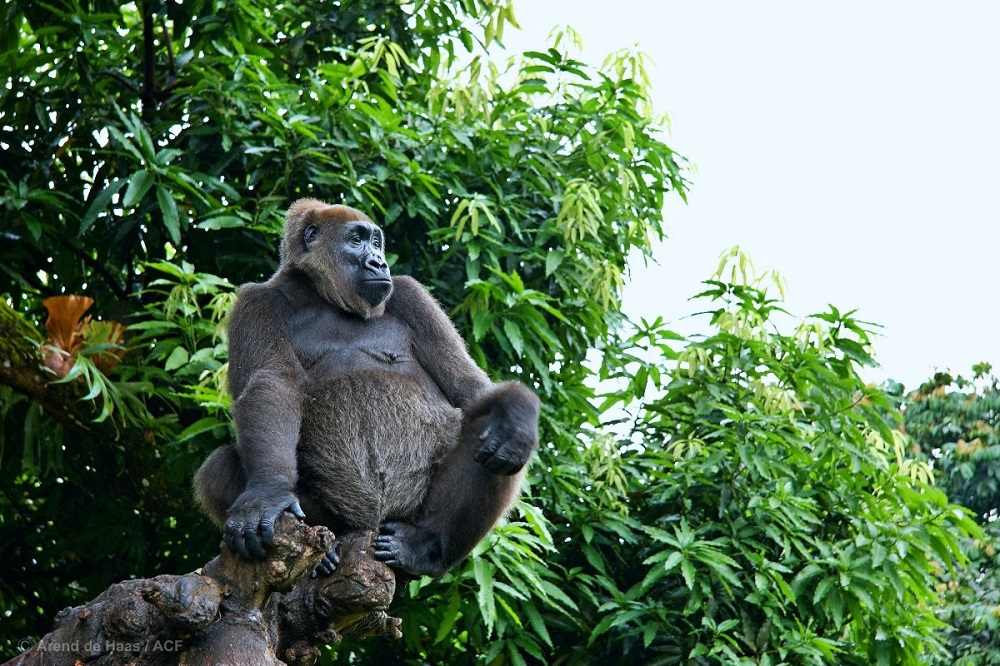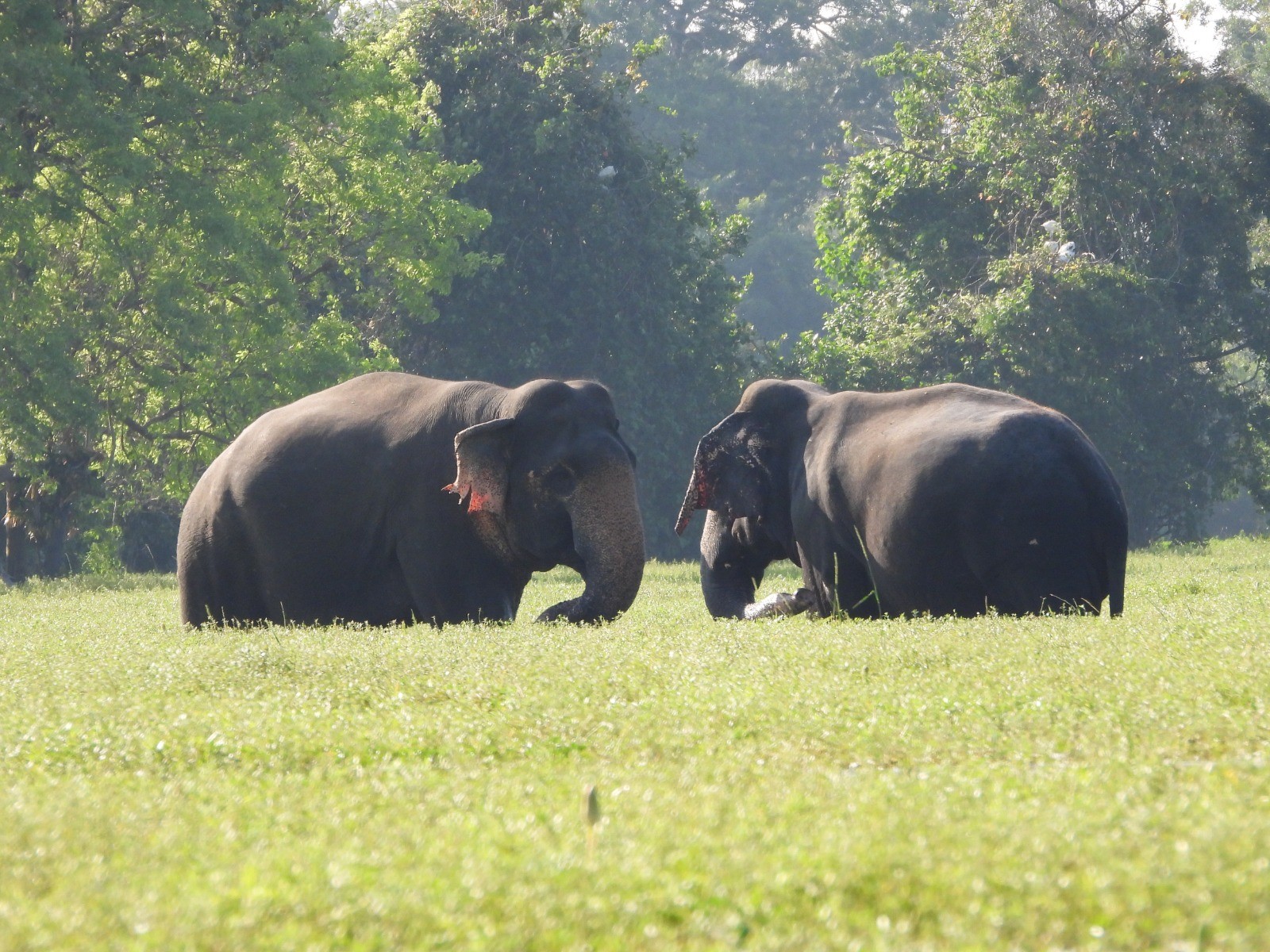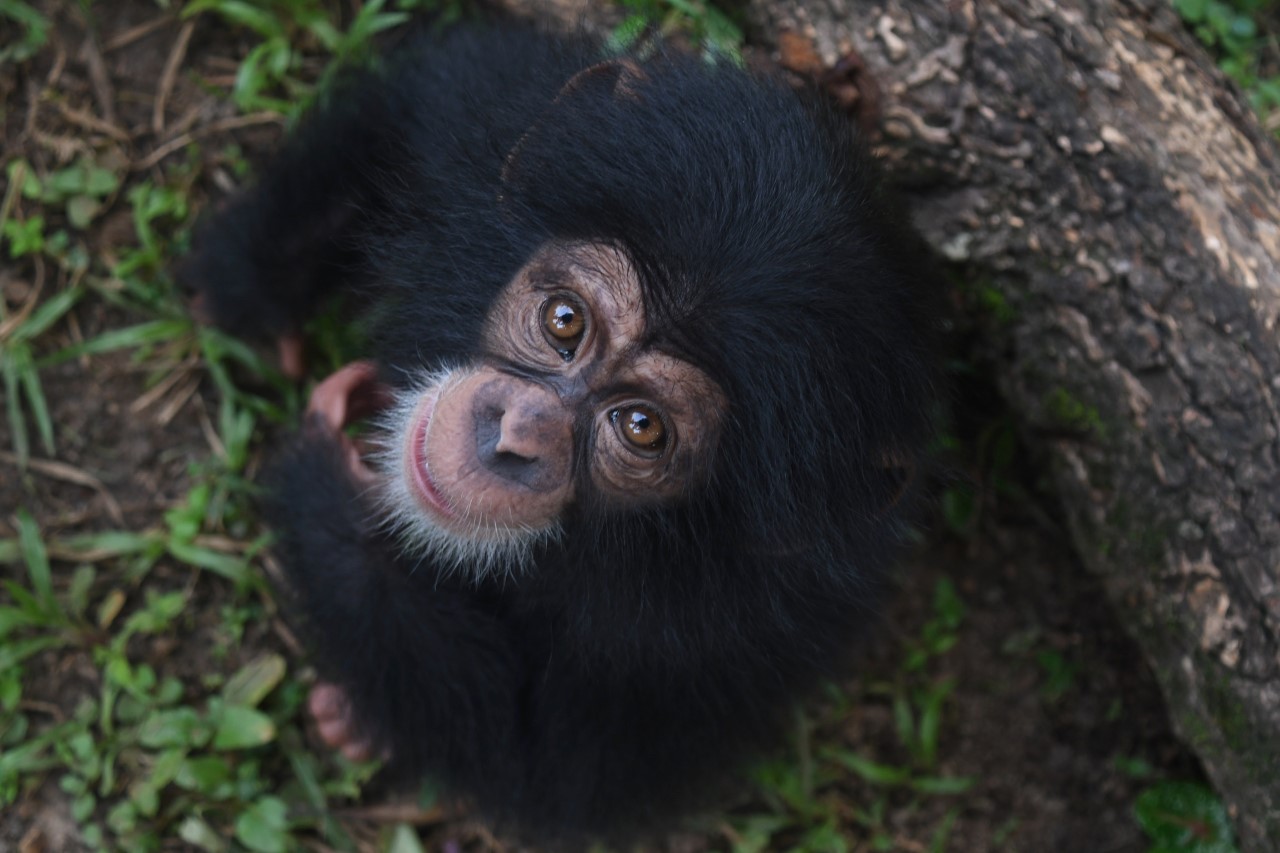The rainforests and highlands of south western Cameroon, the wettest place in Africa, are a biodiversity hotspot. Extending into Nigeria, these ancient forests have high levels of endemism and support many iconic and endangered species, as well as providing essential wildlife migration corridors and being a vital resource in the global fight against climate change. The region is home to Africa’s most endangered great ape, the Cross River gorilla. With just 250 – 300 individuals left in the wild, this species is on the brink of extinction, with habitat loss and fragmentation threatening to isolate small satellite populations. Other notable endangered species include the Nigeria- Cameroon chimpanzee, drill, Preuss’s monkey, three different species of pangolin and many birds. African forest elephants have important migration routes through the area and it is a key stop-off area for long distance migratory birds.
Much of the area is community land with no formal protected status, and the forest is under threat from illegal logging, unsustainable agricultural practices and poaching. Exploitation of natural resources in the region has increased in recent years due to an influx of refugees fleeing conflict in neighbouring areas and the pressure of the covid -19 pandemic giving people no alternative but to turn to bushmeat and timber collection for survival.
Working with our partners at the African Conservation Foundation, we have been able to contribute funds for training, equipment, salaries and thus capacity building for 30 community rangers. The 21 men and 9 women have been selected by their local communities, and work conducting monitoring and nest counts of Cross River gorillas, as well as surveying many other species and mapping conservation threats. They are also best placed to deliver humanitarian action to meet the needs of displaced people that are fleeing to the area.
These rangers were signifcantly under-equipped. However, the provision of smart phones, GPS, tracking equipment, camera traps and software has enabled them to undertake more extensive and accurate monitoring and data collection, as well as training and field safety equipment such as tents and sleeping mats. Just £500 can cover the cost of equipment, training and a year’s salary for one ranger.
A large, landscape scale, community based approach to conservation, connecting protected areas with community forest reserves and sanctuaries, is key to protecting these species and their habitats, whilst also providing sustainable livelihoods for the area’s increasing population (see Cameroon Wildlife Corridor Project). If successful, the long term outcomes of this project are far reaching and of huge benefit not only to the conservation of the extraordinary biodiversity of south west Cameroon and in particular the Cross River gorilla, but also to ensuring secure sustainable use rights of the approximately 15000 people that live in the region and rely on the forest for their livelihood.
There is also great potential for the development of sustainable agroforestry in the area. A new species of coffee has recently been discovered in another highland region of Cameroon with very similar environmental conditions, as well as a rare medicinal tree, Okoubaka aubrevillei, which is being used by a Swiss company to make a herbal remedy against intestinal problems and has a growing market in Europe. These high value crops, along with the production of gorilla honey, could provide a viable alternative to slash and burn agriculture which is a major contributing factor to deforestation and habitat fragmentation.


